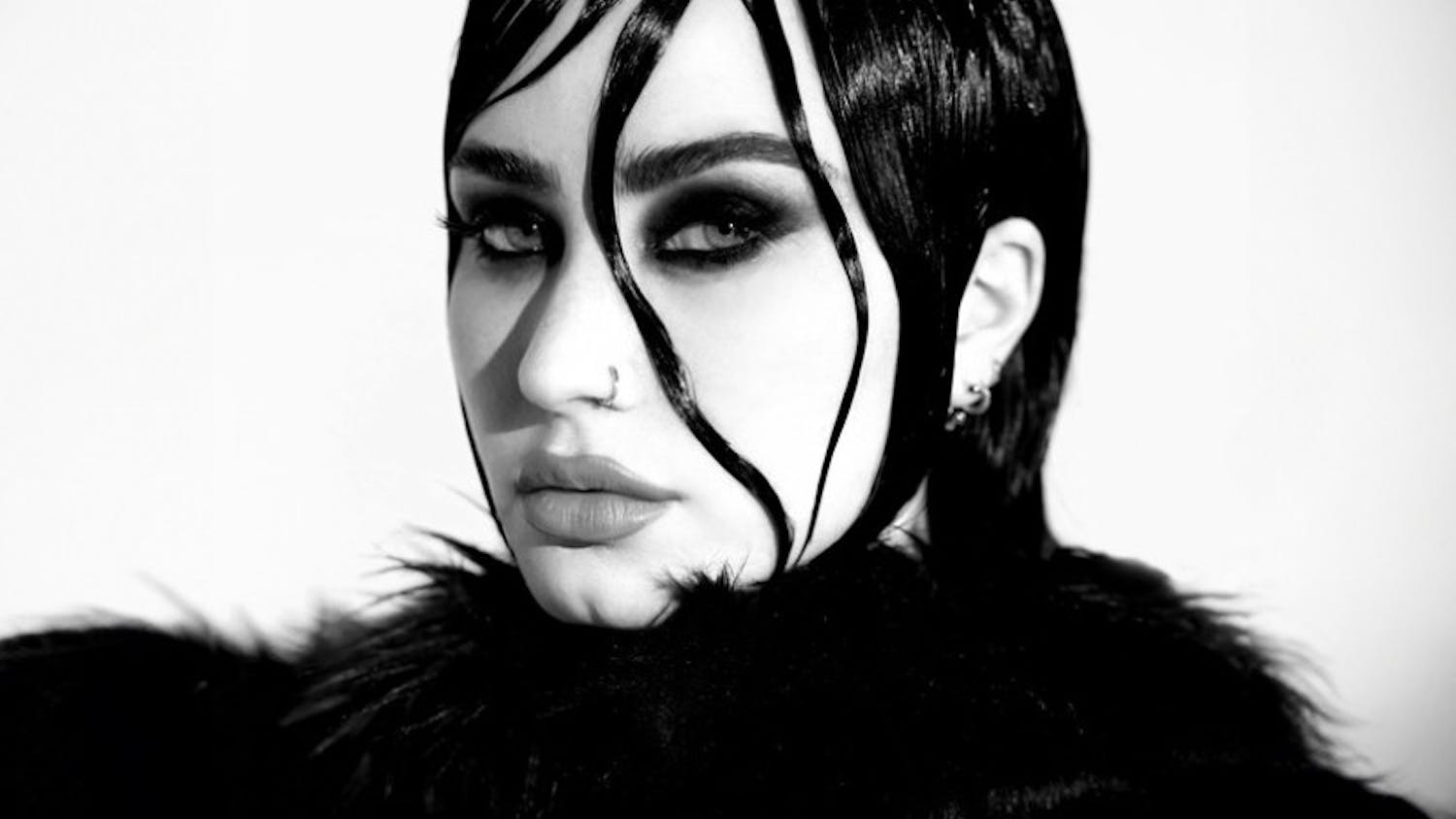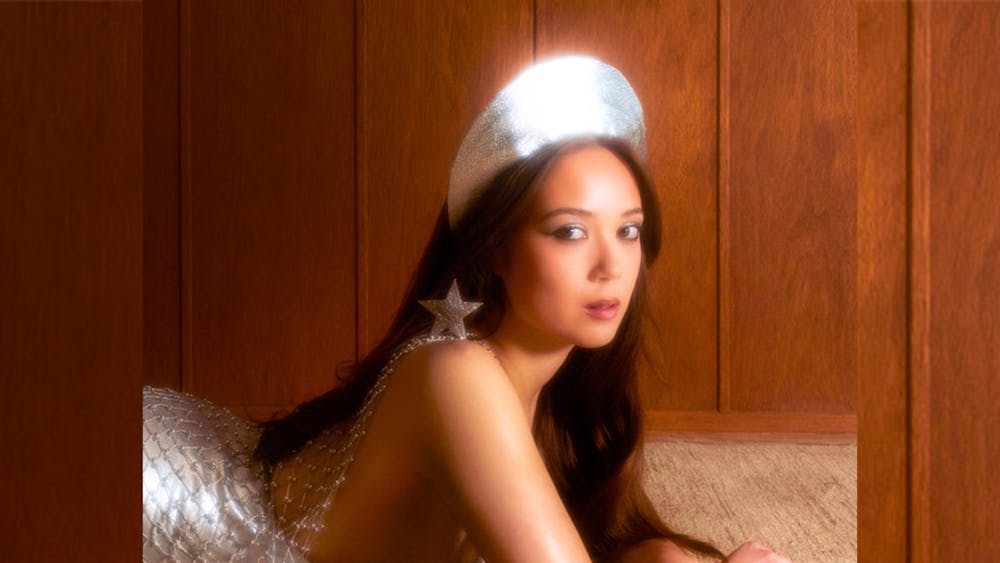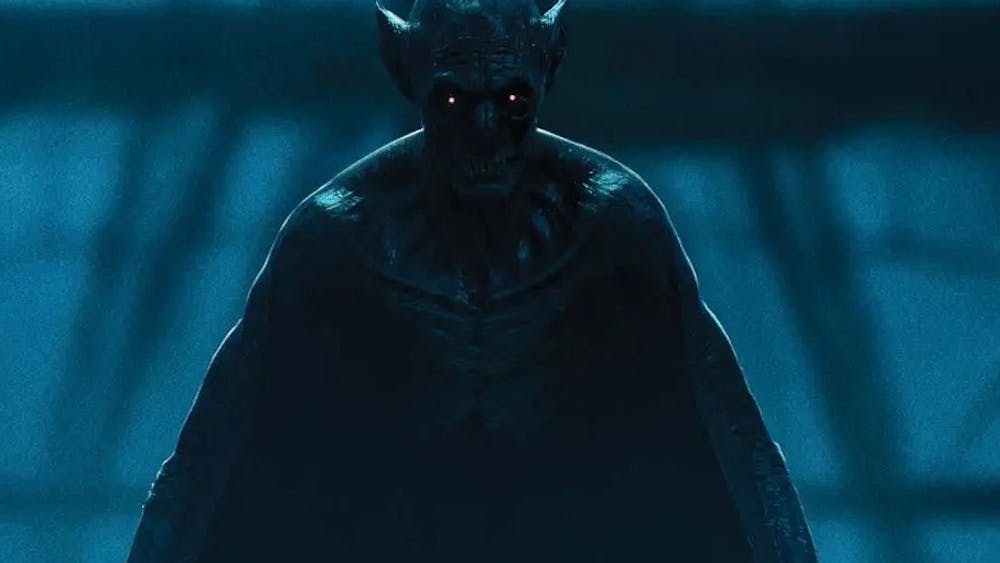Last year was a superb year for celluloid. The only problem is that one of the best films of 1999, if not the decade, was often misjudged and even ignored overall at awards time. The movie in question, "Eyes Wide Shut," deserves a second look, especially in lieu of the lauding of overrated '99 works such as "American Beauty," "Being John Malkovich" and "Three Kings," and the fact that 2000 is the most forgettable year for film in more than a decade. \nAlthough Stanley Kubrick's career only spanned 13 major films, he is arguably the auteur with the most diverse oeuvre to ever come out of America. From "Dr. Strangelove's" black comedy to the solemn drama of "Paths of Glory;" from the garish history of "Barry Lyndon" to the future's technological breadth in "2001: A Space Odyssey," Kubrick screened film's wildest possibilities. Although it is essentially an incomplete work, "Eyes Wide Shut" projects Kubrick's cinematic intellect in its most realized and refined form since "2001."\nThe title alone should be marveled at for its mysterious knowledge of matters that Kubrick himself could have never fully anticipated. Other than relating to the main character -- Dr. Bill Harford -- and his naivete in love matters, the words "eyes wide shut" carry more connotations. \nOne is the fact many critics and audiences decided to keep their eyes and minds locked up when viewing the film. Entertainment Weekly critic Owen Gleiberman obviously paid little attention to the movie because he went as far as to say that "Eyes Wide Shut" is nothing more than "a series of haphazard revelations that come to very little." \nViewers could be much harsher. Their misunderstanding of the film led to laughing at inappropriate moments, the unleashing of agonizing sighs and even allowing stupidity to get the best of them. At one showing in Whittenberger Auditorium, a viewer occasionally used a pen light to point out the female anatomy to the rest of the theater.\nThe second and much more disturbing reality of the title is that it refers to Kubrick himself. His eyes were shut for eternity March 8, 1999, three months before the film opened. Ever the obsessive-compulsive with such matters, he could not complete the film's sound looping and overall editing. \nSo no matter what, the version of "Eyes Wide Shut" that cinema is left with is not wholly Kubrick's vision. And other than the much-publicized, mortifying addition of digital figures to cover up some of the orgy scene's naughty bits, Warner Brothers further visibly detached "Eyes Wide Shut" from the hands of Kubrick. The studio did this by altering the film in its video form by digitally removing a soundman who was accidentally reflected in Victor Ziegler's bathroom and by cleaning up the cut from the fade-out after the "Baby Did a Bad Bad Thing" lovemaking scene.\nEven with the tampering, being unfinished is actually an asset for "Eyes Wide Shut." It adds a facet to the movie's overall dream state, where the realities of relationships and the fears of masculinity coalesce to form Kubrick's second greatest treatise on the male human (the best being "2001").\nAs important as it is to the understanding of the film, the dream concept of "Eyes Wide Shut" is one that eludes most viewers. It actually originates in the English title of the novel that "Eyes Wide Shut" is based on -- Sigmund Freud-admirer Arthur Schnitzler's 1926 work "Dream Story," "Traumnovelle" in its original German. \nFrom the first image onward, the whole of "Eyes Wide Shut" seems more like a masculine nightmare than just a simple piece of rapid eye movement-induced storytelling. The first shot shows Alice Harford (Nicole Kidman) turned away from the camera while she drops her elegant black dress to the floor, revealing Kidman's bare backside. The moment is brief and could almost be considered subliminal, planting a craving into the male viewer's mind to see the rest of Kidman.\nThis is essentially what Alice's husband, Bill (Tom Cruise), wants throughout the entire movie -- the ability to not just see, but be with the entire woman who he believed to be his soulmate up until the second night in the continuity of "Eyes Wide Shut." During this second eve, Alice unravels the truth of her mental infidelity with a naval officer, leading Bill to query everything about the truth of his love. \nThis triggers Bill's descent into the dream-world of his subconscious' greatest fears -- that the woman he cherishes has figuratively left him forever, leading him to wonder about his own sexual identity.\nBill's search for Alice yields love from a woman he barely knows, a moment with a prostitute (the kiss they share is one of Kubrick's most delicately composed shots), a whisper from a scantily-clad teen and a fascination with the one masked woman at the orgy who seems to care about him. (The book even suggests that when he visits this woman's corpse in the morgue, he half-expects her to be Alice). There is also the question of Bill's sexuality, with three different references to homosexuality made -- the college boys' taunting, the usage of the word "rainbow" in the name of the costume shop and the hotel clerk (played to uproarious perfection by Alan Cumming).\nKubrick intersperses connections between scenes to give the film a true dream-like state. Bill's model acquaintances ask if he wants "to go to where the rainbow ends," with the rain-induced anomaly later appearing in "Rainbow Fashions," while a mask similar to those worn at the orgy appears on one of Lou Nathanson's tables. There also is a haunting relationship correlation between Lou's dead body and his bed and the dying figure of Dave and his bed in "2001," stretching "Eyes Wide Shut's" dream-state into the mind of Kubrick. This is intensified even further by the fact that Lou looks similar to Kubrick himself, who died as unexpectedly as Lou.\nThe most profound association in "Eyes Wide Shut" is shared with the reality outside the cinematic medium. Since the viewer knows Cruise and Kidman are married before entering into the film's world, it is taken for granted that their relationship in the film is real. This oftentimes leads the viewer to assume that everything the Harfords participate in takes place within the realistic context of the film rather than in the realm of the fantastic. \nThe viewer's belief makes the jobs of Cruise and Kidman all the more difficult and their outstanding acting all the more remarkable. Cruise has become contemporary Hollywood's ultimate multidimensional man with his ability to be ultra-masculine in films like "Top Gun" and "Mission Impossible" while also portraying the male identity crisis in perfect fashion in "Born on he Fourth of July" and "Magnolia." \nSo, it is no surprise to see the pain and frustration of Bill flow so effortlessly through Cruise's every gesture and line delivery. Kidman, on the other hand, has rarely hinted at greatness (with the lone exception being "To Die For") and gives a most unexpected bravura performance. Her defining moment is the adulterous revelation, with her transition from laughter to seriousness being one of the most natural in the history of cinema.\nKubrick found little hope in the male existence, which is so masterfully evident in "Eyes Wide Shut." Just as Leonore frees her husband from jail while in her male disguise as Fidelio in Beethoven's opera of the same name (which is directly referenced in the film as the orgy password), Bill wishes Alice would finally show her face and unshackle him from his sexual identity crisis and return their relationship to the happy medium it was resting at at the film's beginning. When she finally does face Bill up-close at the movie's finale, she keeps his frustrations locked up by saying one of the most base sexual acts is the answer to their problems.\nThis is Kubrick showing man trapped once more, a la Jack and his axe-wielding obsession in "The Shining" and the ultimate Kubrickian statement: man running in an endless, lonely circle, like a rat trapped in its cage, in "2001." As Kubrick's celluloid dying words, "Eyes Wide Shut" gives male insecurities its last look at full cinematic understanding for probably quite some time, if not forever, even if Alice does not care for this infinite term.
'Eyes Wide Shut' deserves second look
Kubrick's masterpiece examines male insecurities
Get stories like this in your inbox
Subscribe





